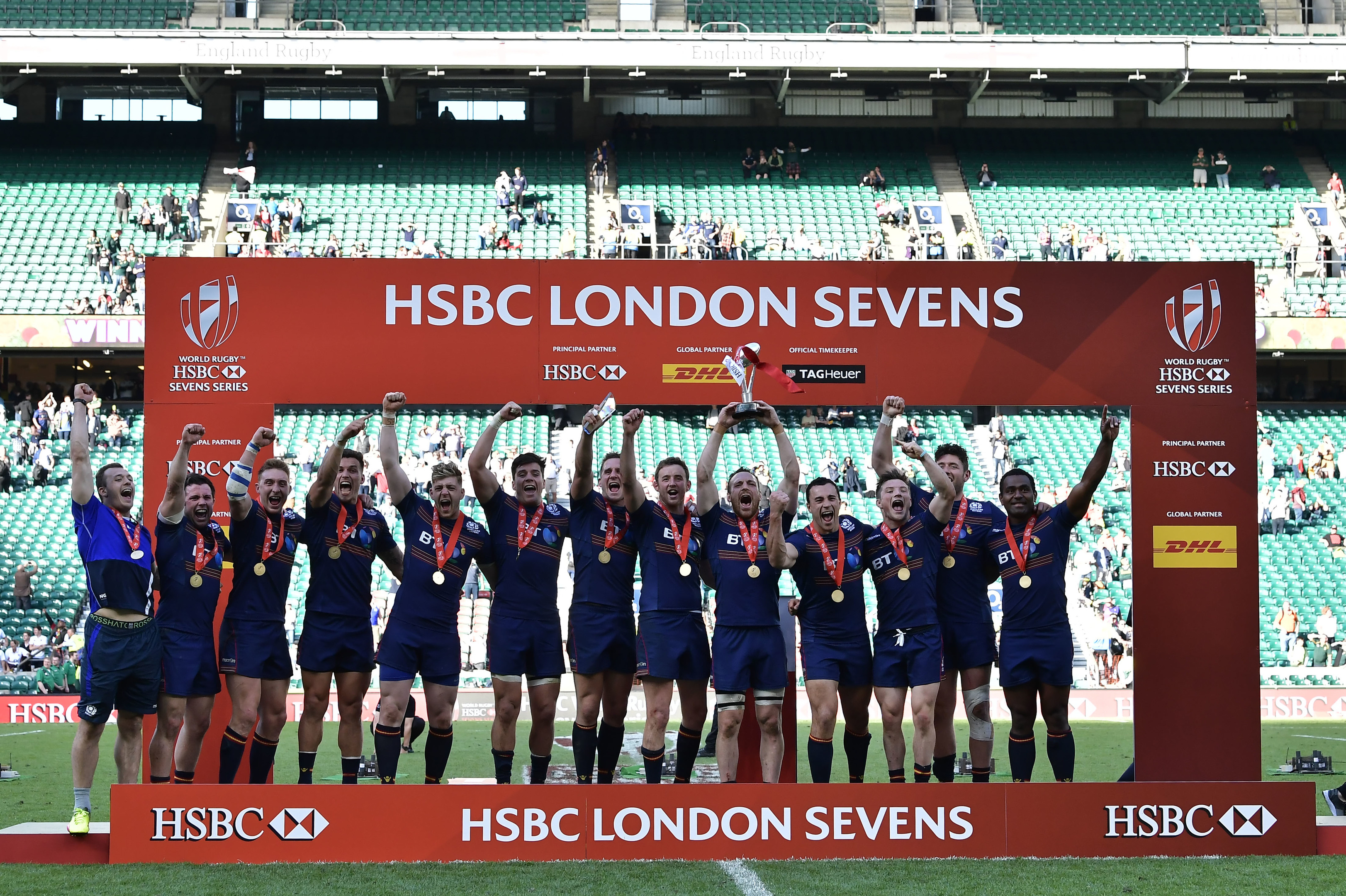The SRU might still roll their eyes when it’s mentioned but any success of the Scotland 7s team will always be related to the fact that they were almost wound up by Murrayfield a year ago.
The hierarchy at the Union can point out, with some justification, that despite the fact it was a very real possibility they would withdraw from full-time participation in the HSBC World 7s Series, in the end it was a road they didn’t take.
So they can just about take some reflective credit for the rise of Calum MacRae’s squad to retain the season-ending Twickenham title, to get to the final of the tournament in Paris a week earlier, and to finish seventh in the rankings – like the national 15s team, their highest-ever position.
Some, perhaps. But the lion’s share goes to MacRae, his backroom team and especially the squad who have utterly changed the fortunes of Scotland 7s in 18 months. They’ve ended the prospective embarrassment of the country that spawned the shortened game not being involved in the world scene by…simply being good.
The threat to the 7s didn’t happen in a vacuum, or simply because it was a cost-cutting exercise, although that was a large part of the reasoning behind the SRU’s indecision. The team had made so little impact on the series in terms of successes and there seemed to be no coherence or plan as to how they might get them.
There were talented players on the squad alright; the now retired Colin Gregor was a lynchpin for many years, Mark Robertson and Scott Wight, who both retired after Twickenham, were seriously good sevens exponents. James Fleming had – and still has – serious speed. But nobody seemed to be able to bring it all together.
Until MacRae, who some seasoned observers think might be the best young coach the Union have on their books. “Kitty” changed the attitude and direction of the squad through years of stagnation and the results have been almost immediate.
MacRae now leaves to go to Edinburgh as defence coach and perhaps a path to bigger things for the former Scotland A centre is opening up from there.
In the meantime, the Union’s seriousness about the 7s now is shown by the appointment of his replacement, another former Melrose man John Dalziel, himself on the development path after successfully coaching Scotland Under-20s.
Robertson and Wight’s departure leaves a hole in the squad but it’s being filled by others, notably George Horne who was co-opted successfully from Glasgow Warriors to be a stand-out in the final two tournaments.
The 22-year-old younger brother of Scotland international centre Peter and son of former Howe of Fife coach Garry should have ambitions in 15s, but like his brother, 7s could be a key factor in his development.
This is another significant change – the 7s squad at times looked like a last resort for players looking to hang on in the professional Scottish scene. Success has suddenly made it much more that.
The call is now for Scotland to recapture their leg of the World Series lost in the general indifference and cost cutting, preferably based at the Greenyards in Melrose, where the shortened game began.
However romantic that might sound, it’s probably beyond the bounds of practicality and expense.
Accommodating 16 international squads and their support staff – both on and off the venue – in the manner to which they are accustomed in the little Border town would cost a frightening amount for a Union still watching the bank balance.
Getting a series leg back to Murrayfield, however, is surely feasible. If the fans now have a team worth following, then they will definitely turn out.


